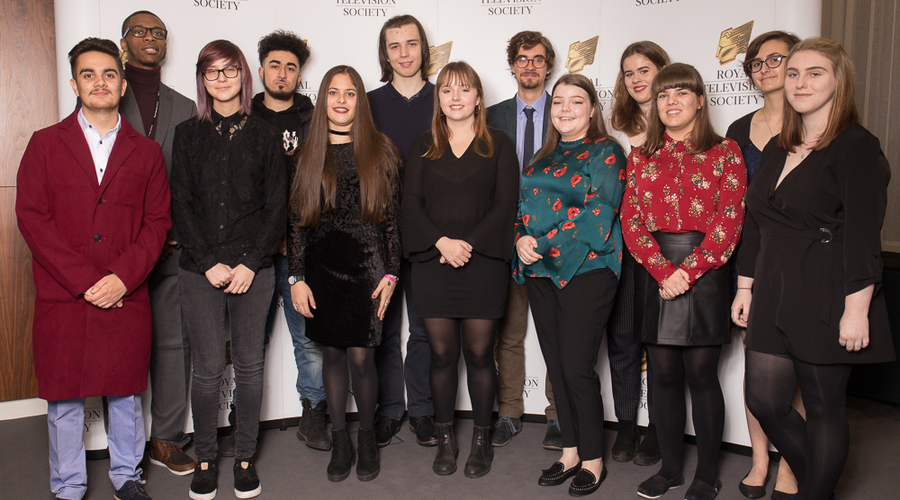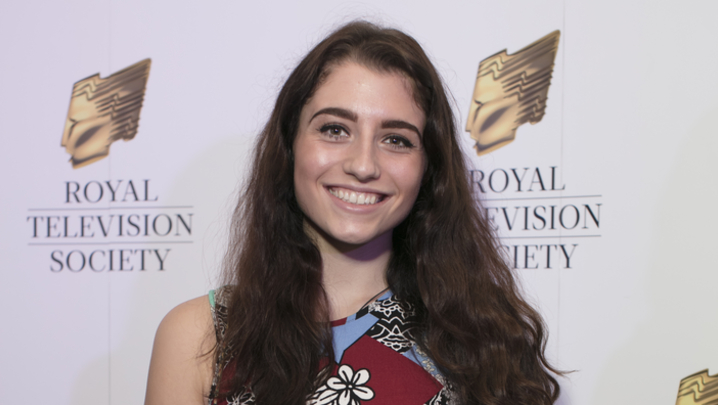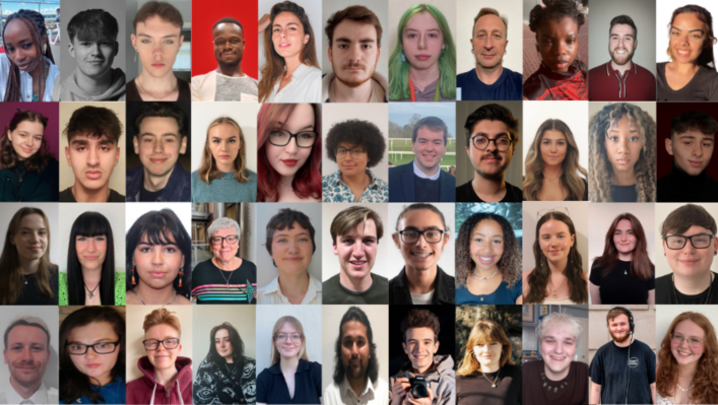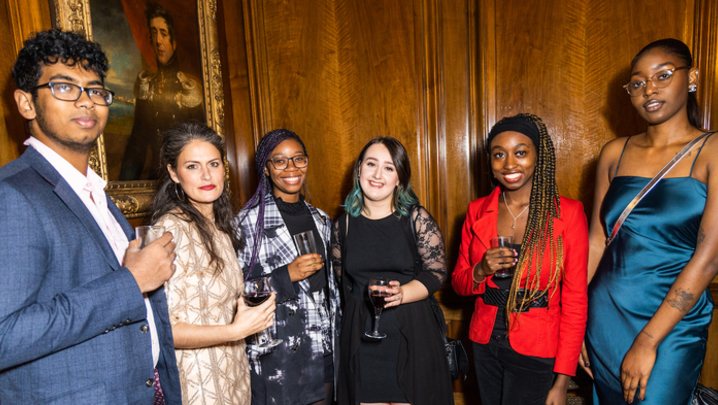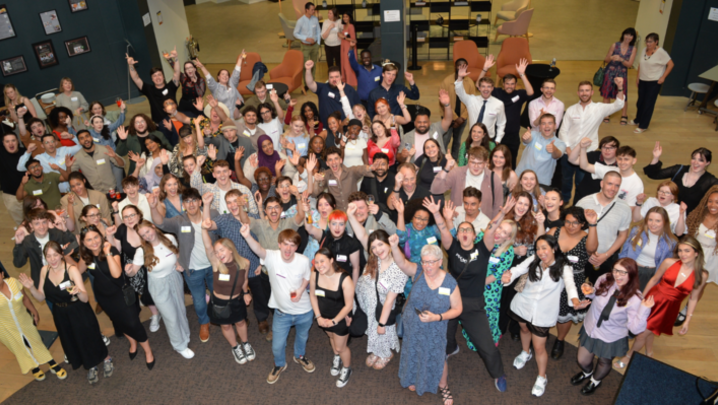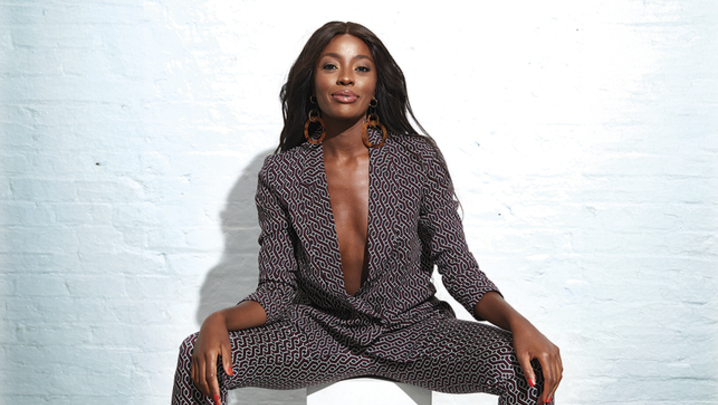Anne Dawson talks to three RTS bursary students and their media guides, who highlight the mutual benefits of mentoring
RTS bursary student: Natasha Graham
Mentor: Julian Unthank, Screenwriter
Natasha on Julian
I wasn’t sure what to expect from the mentoring programme. I was a bit nervous about being matched up with Julian. You never know what someone’s going to be like.
He was really nice, though. He called me straight away and asked me what I was interested in. He’s very down to earth. I like that about him.
He invited me to meet him at H Club London – we get membership as part of our RTS bursary, so that was nice.
He told me so much about the industry. I asked him how you got a script accepted. He also explained how a series has several different writers and how they get people in for particular bits.
He is making a new programme, Queens of Mystery, a comedy crime series. I think it’s going to be really funny.
"I feel I have learned so much from him, things that you don’t get from university"
He asked me which department I’d like to spend time in. I said sound. So, I spent a day with Jake [Whitelee]. He was brill and showed me all the equipment and how to connect things up. He got me to go out and record some things. I learned so much that day.
Julian has more than exceeded my expectations. It was so valuable to have his insights into the industry. I try to remember to email him every couple of months.
It’s important to keep in touch. I think the best things about the mentoring scheme is having someone you can ask anything related to the industry. I feel I have learned so much from him, things that you don’t get from university.
I would advise other students who have the option of a mentor to make the best use of this opportunity. It’s easy to put off emailing or ringing. Sometimes Julian was working hard but he would always try to help.
I’ve found most people in the industry will help if you ask. You just need to be brave enough to do it.
My other piece of advice, which is nothing to do with mentoring, is to get a driving licence. So many jobs require it.
Julian on Natasha
I offered to mentor because I know how difficult it can be to get into the industry if you don’t have the connections.
It’s important for the industry to become more diverse. Having too many white males from similar backgrounds is not good. I struggled myself. It’s not easy if your parents don’t work in the media.
I loved working with Natasha. I’m always happy to help if I can. If everyone helps a bit, we all benefit. And it keeps you young, working with a young person. It’s good to have their voices and outlook in your life.
I think everyone should volunteer. If you’re in a position where you can help someone, you should. I tell my kids how lucky they are. Not everyone has the same start in life.
Natasha’s not sure what she wants to do yet, but she’s interested in sound. If she trains as a sound engineer, she’ll never be out of work.
She’s a great person, who has lots of skills. I know she will go far.
Natasha Graham is in her final year studying television production at Teesside University. Originally, she considered a career in scriptwriting, which is why she was matched with Julian Unthank, a scriptwriter whose credits include Doc Martin, New Tricks, Robin Hood and The Bill.
RTS bursary student: Lee Hodgetts
Mentor: Sam Hoyle, Script executive and producer
Lee on Sam
Sam is a very busy lady, very down to earth, friendly and really helpful. She answered all my questions and has lots of experience and good advice to give.
She took the mentoring very seriously. We spoke about once a month. She helped me focus on what I am interested in. The best thing about the mentoring was the practical advice Sam gave me. She read my scripts and give me her feedback.
Sam was an inspiration. She’s been so successful with the shows she has worked on. I got such a lot from hearing about her own experience and how she got her ideas accepted.
She gave me very valuable insight into the different roles and how they work in practice.
It’s great to know you have someone on the inside. Already, she has opened up lots of opportunities for me.
I would hope we will stay in touch. I would like to have her as a friend. She has been really selfless and kind in giving me so much time.
Sam on Lee
I’ve benefited from being mentored myself so I thought it would be nice to do it for someone else. I’ve mentored informally before. I thought it would be good to do it in a more structured way.
"You probably don’t know how much useful knowledge you have, so give it a go"
As it turned out, I only ended up meeting Lee in person once, when we both happened to be in London. Apart from that, we Skyped once a month.
Early on, we talked about more general industry-related things. Subsequently, in later calls, I had read his scripts and gave him notes.
Lee is a terrific individual. He is focused, organised and motivated. He has a gentle side to his nature that is very creative and talented. There are so many jobs that could suit him in the industry.
Helping Lee to decide what sort of role he should aim for in TV has made me reflect on the choices I’ve made. I’ve worked across comedy, film, radio and kids’ TV before ending up in prime-time drama.
There are so many jobs I didn’t even know existed before I stumbled across them. It’s important to stay open to all ideas and opportunities.
Lee has been a fantastic mentee. He is really respectful about the amount of time I have available and recognises the value of the help he is getting.
He knows what he wants to talk about and how to make the best of the opportunity. It is great to meet a young person who is so motivated and has so many ideas.
If I were to offer Lee any advice it would be to trust his instincts, as they are very good. Also, remain open to the opportunities that will appear and be prepared to give things a try.
He can call me any time. I’d love to see how things turn out for him. Any time he wants some advice he is very welcome to get in touch.
My advice to anyone considering mentoring is that you probably don’t know how much useful knowledge you have, so give it a go. It doesn’t take a lot of time and you get a lot out of it.
Lee Hodgetts is undertaking a year’s placement with Disney. He will return to complete his degree in television and film production at the University of York in the autumn. Sam Hoyle’s credits include Doctor Who, Broadchurch and The Life and Adventures of Nick Nickleby.
RTS bursary student: Andrew Michael
Mentor Nick Johns, Head of entertainment development, STV
Andrew on Nick
The first time I met Nick I knew I was in good hands. I went to his office in London. It’s quite cool going to the STV offices.
It has helped me understand what the different roles are in TV. Generally, we work via email. When I come home for holidays, I usually send him an email a couple of weeks before and we then arrange to meet.
The mentoring guidelines are quite loose, so I wasn’t 100% sure what to expect from him. It has allowed the mentor/mentee relationship to develop naturally.
I’ve learned a lot from Nick, especially about myself. I’ve learned that what I have is enough to get me places. I’ve learned that, as long as you have a smile, are positive and welcoming, you can get somewhere.
Nick has exceeded my expectations by 100%. I was expecting him to be more formal, but our conversations are relaxed. I’ve had opportunities to be on set. I also spent a week working in development, which was great. I would really recommend having a mentor. There is so much to gain.
Nick on Andrew
I volunteered to mentor, mainly to give something back. I am fortunate to be at a stage in my career where I have a fair amount of experience and knowledge to pass on.
"I feel very lucky to be able to get his view on something because he comes from a different generation"
I was also somewhat encouraged to become a mentor. I had a small feeling that it could turn out to be a bit of a chore. I don’t know if Andrew realises it, but I’ve easily got as much, if not more, from the experience as he has.
My first impression was: gosh, isn’t he young, younger than the youngest member of my team. He brings a different view on things. He’s very interesting to talk to and someone who has a lot to say.
Andrew manages the process really well. He always comes to see me if he is in London. He gets in touch beforehand and makes an appointment. The first time we talked it felt like an interview. He came to see me at my office and it did feel quite formal, but, as the weeks have gone by it’s become less so. He’s spent some time in the studio. I think he thoroughly enjoyed his week’s experience with the development team.
I feel very lucky to be able to get his view on something because he comes from a different generation. Has Andrew met my expectations? He’s exceeded them. I really look forward to our meetings. I always get something out of them.
I would advise everyone to give mentoring a go. Don’t be frightened of it or worried how valuable your experience is. Once you get talking, you’ll be surprised at how much you have learned over the years.
Occasionally, I still think: “Am I doing it right?” But it seems to work for Andrew.
If I were to give Andrew one bit of advice it would be to stay open to opportunities and don’t worry about having a plan for life. Try as many things as possible.
People move about a lot in the media. You can follow many different career paths. There’s so much going on and the landscape is changing. It’s like the Wild West and we’re at the frontier. What a great time to be young and starting out.
Andrew is a second-year student studying film and television at Edinburgh College of Art. Nick started his career as a barrister before changing tack to work in TV. He has worked on a range of projects previously, including Dancing on Ice for ITV and BBC One’s Let’s Dance for Comic Relief.
Join our team of mentors
The RTS Television Production and Broadcast Journalism Bursary scheme aims to help people from lower-income backgrounds pursue a career in television.
The students say the most valuable aspect of the scheme is the connections they are able to make through networking at RTS events and via the mentoring scheme, which links them to a mentor working in the sector.
If you are interested in becoming a mentor, more information can be found at: rts.org.uk/mentoring

